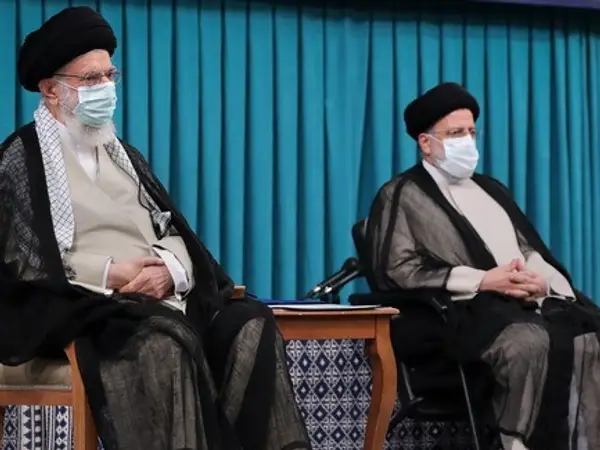Print media in Iran was full of criticism on Saturday highlighting the Raisi government's inefficiency and ineptitude in improving the dire economic situation.
After eight months in office, President Ebrahim Raisi has failed to make a dent in inflation, hovering around 40 percent, and rising food prices. Media in Iran are full of news about meat and vegetable prices breaching new levels, as the government starts to give food stamps to the hungry for bread.
Nuclear scientist and former lawmaker from Esfahan, Ahmad Shirzad told Etemad Online website: "One of Raisi's biggest problems is that he appointed almost everyone in his clan to key posts in the government regardless of their expertise. Anyone who bows to him will become a manager. This leaves no hope for the government's future."
Shirzad added that even a reshuffling of the cabinet is not likely to lead to improvement because Raisi will most likely choose people who are even weaker than current officials.
Shirzad pointed out that although Raisi pretends to be powerful, he is not the one who makes all the decisions. He and his ministers simply carry out decisions that are made by others. Shirzad did not name who "others" were, but in the Iranian context that could only mean Supreme Leader Ali Khamenei.
It is clear to most commentators in Iran that there should be a nuclear deal with the United States to lift sanctions and this decision lies with Khamenei. But this is not something they can say publicly, as it would be seen as criticizing the Supreme Leader. Instead, attacks intensify against Raisi for the deteriorating economic situation.
During the weak, other critics wondered where is all the extra money from additional oil exports Raisi claims his government was able to pull off despite United States’ sanctions.
Meanwhile, reformist lawmaker Massoud Pezeshkian said in an interview with Didban Iran website that "Iran belongs to all Iranians not to the members of a certain group." Criticizing Raisi's inaction, he said, the president made a lot of promises during his campaign without realizing that he has to fulfill some of them, or be criticized.
"You cannot swear at the United States from outside the government, but when you run the government and need to take care of the people's livelihood amid economic problems, then you will see that you need a practical and realistic approach to political matters," Pezeshkian said.
Asked whether the impeachment of Raisi's economic ministers and reshuffling of his cabinet would be a solution to the country's problems, Pezeshkian said: "I do not believe that would solve any problem as long as Raisi and his government do not change their approach to management." He added, "When you have no idea of the road ahead and no plan to go further, even the best driver in town cannot help you reach your destination, if you have one."
In another development, reformist political commentator Abbas Abdi said in a commentary in Etemad website that "all of Raisi's propaganda and accusations against the previous government have come back to hit him like a boomerang."
He wrote, "all politicians magnify their own performance and belittle their predecessors' achievements, but if you do this in an exaggerated way, as Raisi did, then you will get a result contrary to what you had in mind."
With all the criticisms Raisi voiced about the administration of Hassan Rouhani, people expected that he would solve some issues within a few months, but problems are still there after eight months and there has been no improvement to make the nation hopeful, Abdi said.
He added that "The elite wanted to see that Raisi forms an efficient cabinet, and for the people, it was important to see that the cabinet would deal with inflation, unemployment, shortcomings in public services and so on. Had it happened, it would have been a positive change."
